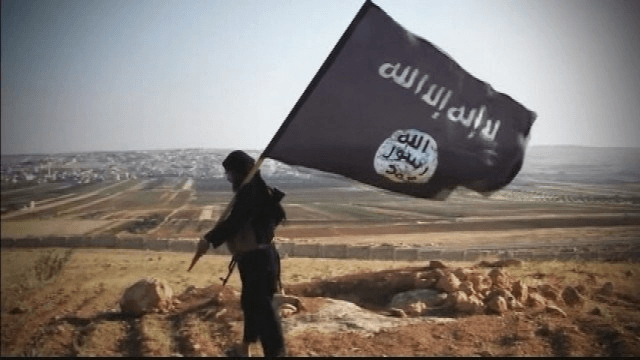A Western official told The Guardian that evidence seized at the compound of Abu Sayyaf, an Islamic State (ISIS/ISIL) leader, proved indisputable links between the terrorist group and the Turkish government.
“There are hundreds of flash drives and documents that were seized there,” explained the official. “They are being analysed at the moment, but the links are already so clear that they could end up having profound policy implications for the relationship between us and Ankara.”
ISIS placed Sayyaf in charge of oil smuggling, which lined their pockets with millions of dollars. The evidence at his compound allegedly highlights NATO member Turkey as one of their top clients.
This evidence is only the latest to show ties between Turkey and NATO. In June 2014, an ISIS member told The Jerusalem Post that Turkey provides funds for the terrorist group:
Turkey paved the way for us. Had Turkey not shown such understanding for us, the Islamic State would not be in its current place. It [Turkey] showed us affection. Large [numbers] of our mujahedeen received medical treatment in Turkey. We do not have the support of Saudi Arabia, but many Saudi families who believe in jihad do assist us. But anyhow, we will no longer need it, soon. We will build the Islamic state in the territories from Tigris to Jordan and Palestine and to Lebanon. Sunni Law will rule.
The terrorists captured Azaz, a key town in Syria near the border of Turkey in September 2013. That is significant because Turkey “vocally supported the fight against forces loyal to President Bashar al-Assad and allowed weapons to cross into Syria on its southern border.” The capture of Azaz allowed easier access to the jihadists. Two months later, CNN featured Turkey’s secret jihadi route to Syria.
A Turkish nurse only known as E.G. complained to authorities that she is tired of treating members of ISIS. She said she is “disturbed” the militants receive treatment in Turkish hospitals even though they hold several Turkish nationals as hostages. She claimed the men check in under false names:
The ISIL commander named Muhammet Ali R. who was admitted to our hospital on Aug. 7 was treated at room number 323. Many of his bodyguards kept watch around the hospital. Many other ISIL commanders like him and soldiers have been treated at our hospital, and returned to war after the completion of their treatment. I don’t want to help these people. I want you to inspect these hospitals. And I am referring the owners of the hospital and its management to God.
This evidence may also shed light onto why the Turkish government remained hesitant for many months to target ISIS militarily, even as the terrorist group inched closer to the border. That all changed last week after a suicide bomber killed 32 people in Suruç, and a militant murdered a Turkish soldier.
On July 23, Turkish authorities granted America permission to use the Incirlik Air Base to strike ISIS in Syria. The two reached another agreement for an “Islamic state-free zone” along the Turkey-Syria border. Turkish officials also called for NATO talks under Article 4, “which allows countries to ask for consultations when they believe their territorial integrity, political independence or security is threatened.” The Turkish Foreign Ministry released this statement:
In the wake of increased security threats following the attacks against our security and law-enforcement forces in provinces of Diyarbakır, Şanlıurfa and Kilis, in particular the terrorist attack that took the lives of 32 innocent Turkish citizens in Suruç on 20 July 2015, all necessary measures are being taken and in this context, operations are also being carried out by the Turkish Armed Forces. Upon these recent attacks and threats directed against our national security, North Atlantic Council has been called for a meeting by Turkey [this] week under Article 4 of the Washington Treaty with a view to informing our Allies about the measures we are taking and the operations we are conducting against terrorism, as well as to holding consultations with them.

COMMENTS
Please let us know if you're having issues with commenting.